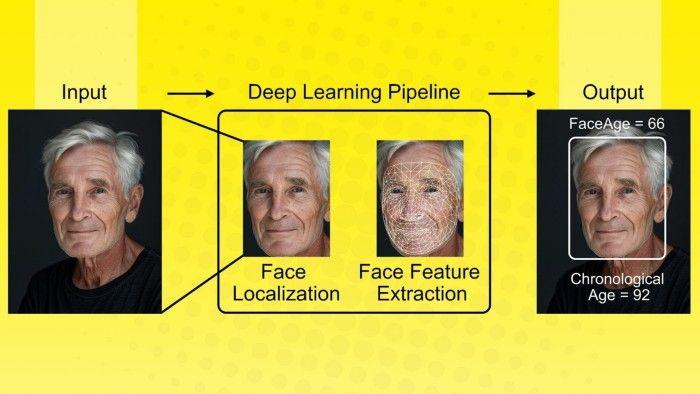AI-Powered 'Death Clock' App Claims to Predict User's Lifespan
2 Sources
2 Sources
[1]
New 'death clock' claims to be able to predict when you will die -- ...
A new artificially intelligent app claims to be able to pinpoint your expiration date -- all in an effort to motivate users to make healthier choices and lead longer lives. For $40 a year, those looking to have the grim news delivered can download the Death Clock, which will ask a series of questions about your health and social habits -- helping it to predict not only a year but the exact date of a person's mortality, along with their current biological age. Its intention is to serve as a wake-up call -- before it is too late to make meaningful changes. "In today's world, healthcare is typically reactive, intervening only when problems arise and often too late," said founder Brent Franson. "Death Clock represents the shift to Medicine 3.0, where individuals are equipped with comprehensive knowledge about their health and encouraged to proactively manage their wellness to enjoy longer, healthier lives," he said. The ghoul tool will then create a custom-tailored "longevity plan" of suggested lifestyle changes and things worth bringing up to a person's doctors. Blood tests, genetic profiles, and other personal health documents can also be uploaded to the app. When tested by CNET's Amanda Kooser, she reported that Death Clock questions range from biological factors like levels of cholesterol to inquiries on both sleep and mental health along with how much a person sits per day. Other questions revolve around dieting, physical activity, smoking, and having a social life as well. When Kooser intentionally bombed the quiz to see the worst results -- perishing in 2043 -- she wrote "that's motivation for me to stay on the straight and narrow."
[2]
AI Death Clock Predicts Your Death Date: We Tried It So You Don't Have To
Freelance writer Amanda C. Kooser covers gadgets and tech news with a twist for CNET. When not wallowing in weird gear and iPad apps for cats, she can be found tinkering with her 1956 DeSoto. Thursday, Feb. 13, 2070, is the day I will die, according to Death Clock, an AI-powered app that crunched the numbers on my lifestyle, compared me with the results of 1,217 scientific studies and figured out when I would likely kick the bucket. It seems pretty generous to me. I'll be in my 90s if it comes true. The current average life expectancy for US women is 80.2 years, so I must be doing something right. Death Clock is part life coach and part grim reaper waiting patiently on your doorstep while offering helpful tips for delaying your inevitable demise. The developers call it an app for "AI-powered longevity." AI analyzes your answers to a health and lifestyle questionnaire and compares it with what studies say about longevity. For example, smoking cigarettes can have a negative impact on lifespan. The AI can calculate the toll smoking takes on your expected lifespan and also figure out how many years you could earn back by quitting. "Because nothing says 'I care' like an AI trying to keep you alive," the app description quips. It's one thing to dwell on your possible date of death. The more important part of the equation is what you can do about it. If you dig deeper into the app, you'll find motivational tools, exercise suggestions, supplement recommendations and ideas for healthy meals. Death Clock AI officially launched on Sept. 18, though it's been available in earlier forms in the Apple App Store since May. It's also available through Google Play for Android. You can run your death date for free, but a subscription is required to access the full features, including personalized suggestions for improving your health and (potentially) pushing back your death date. The app offers a seven-day free trial. A subscription runs $10 per month or $40 per year. Be prepared to be honest about your habits. Death Clock runs you through a series of questions that touch on diet, exercise, mental health, physical health and your social life. How much sleep do you get? What are your cholesterol levels? How much of the day do you spend sitting? Besides your death date, the app will estimate your biological age and assign you a health score. You can then explore ways to improve your stats. Read more: Microsoft Copilot AI Gets Faster, Smarter and More Collaborative Death Clock may seem morbid, especially if your predicted death date is uncomfortably close, but it's meant to be a tool for positive change. I tried the app again, but lied about my habits. I fed it a fictional version of me that eschews vegetables, chows on processed foods, uses nicotine, rarely works out and experiences frequent stress. Death Clock adjusted my death date accordingly, putting it at Thursday, April 9, 2043. What a difference. That's motivation for me to stay on the straight and narrow -- to keep on running, eating my garden vegetables and socializing with supportive friends. There's a lot of competition among fitness apps and mental health apps. Death Clock aims to set itself apart with its eye-opening death-date hook and through offering a holistic approach that addresses everything from substance use to sleep habits. The free trial should be enough time to evaluate whether Death Clock's approach works for you. The app seems to be taking to heart a famous line from a Monty Python song: "Always look on the bright side of death."
Share
Share
Copy Link
A new AI-driven application called 'Death Clock' has emerged, claiming to predict a user's lifespan based on various health and lifestyle factors. The app has sparked both interest and controversy in the tech and healthcare communities.

The Rise of the AI Death Clock
In a startling development at the intersection of artificial intelligence and healthcare, a new app called 'Death Clock' has been launched, purporting to predict when a user will die. This AI-powered application, developed by Nimblework, has quickly become a topic of intense discussion and debate across various platforms
1
.How the Death Clock Works
The Death Clock app utilizes a sophisticated AI algorithm that analyzes a wide range of user-provided data to generate its predictions. Users are required to input information about their lifestyle habits, medical history, and even genetic predispositions. The app then processes this data through its AI model to estimate the user's potential lifespan
2
.Accuracy and Limitations
While the developers claim a high degree of accuracy, experts caution that predicting human lifespan is an incredibly complex task influenced by numerous variables, many of which are difficult to quantify or predict. The app's creators acknowledge that the predictions are not absolute and should be viewed as estimates based on current data and trends
1
.Ethical Concerns and Psychological Impact
The introduction of the Death Clock app has raised significant ethical concerns among healthcare professionals and ethicists. Critics argue that such predictions could have severe psychological impacts on users, potentially leading to anxiety, depression, or reckless behavior. There are also concerns about data privacy and the potential misuse of such sensitive information
2
.Related Stories
Potential Benefits and Applications
Proponents of the app suggest that it could serve as a wake-up call for users to adopt healthier lifestyles. Some healthcare providers see potential in using similar technology to identify high-risk patients and implement preventive measures. However, they stress the importance of using such tools in conjunction with professional medical advice
1
.Public Reception and Future Outlook
The Death Clock app has garnered significant attention since its release, with user reactions ranging from fascination to skepticism and fear. As AI continues to advance in the healthcare sector, it's likely that we'll see more applications attempting to predict various aspects of human health and longevity. The debate surrounding the ethical implications and practical applications of such technology is sure to intensify in the coming years
2
.References
Summarized by
Navi
Related Stories
AI-Powered 'Death Clock' App Predicts Life Expectancy, Sparks Debate on Health and Ethics
02 Dec 2024•Technology

AI-Powered 'Death Clock' App Sparks Health Awareness and Lifestyle Reflections
14 Feb 2025•Technology

AI Tool 'FaceAge' Predicts Biological Age and Cancer Outcomes from Facial Photos
09 May 2025•Science and Research

Recent Highlights
1
Pentagon threatens to cut Anthropic's $200M contract over AI safety restrictions in military ops
Policy and Regulation

2
ByteDance's Seedance 2.0 AI video generator triggers copyright infringement battle with Hollywood
Policy and Regulation

3
OpenAI closes in on $100 billion funding round with $850 billion valuation as spending plans shift
Business and Economy





